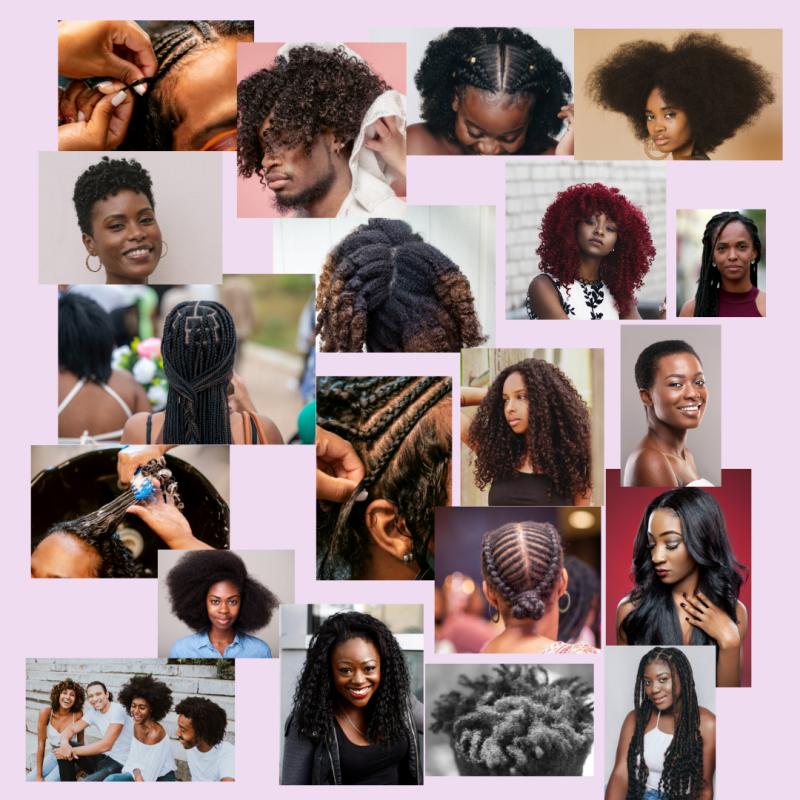
Black hair is one of the most diverse, beautiful, and resilient textures in the world. It tells stories of heritage, culture, and individuality. Yet, too often, it has been misunderstood, misrepresented, or overlooked in mainstream beauty education. To truly honor the art and science of cosmetology, it is essential to understand, care for, and style Black hair with both knowledge and respect.
The Uniqueness of Black Hair
Black hair comes in a wide variety of curl patterns — from loose waves to tight coils. Its structure often includes more bends, twists, and curves than straighter textures, making it prone to dryness and breakage if not handled properly. Recognizing the differences in density, porosity, and elasticity is key for any stylist or individual learning to care for it. Black hair is not “one-size-fits-all.” Each head of hair has its own story and needs.
Caring for Black Hair
Healthy hair starts with healthy care practices. Because of its curl structure, Black hair needs moisture-rich products, gentle cleansing, and protective styling. Deep conditioning treatments, the use of natural oils, and methods like LOC (Liquid, Oil, Cream) or LCO (Liquid, Cream, Oil) are popular and effective ways to lock in hydration. Scalp care is equally important — regular cleansing and proper pH balance keep the foundation strong for growth and vitality.
Styling Black Hair
The versatility of Black hair is unmatched. It can be worn in natural curls, silk-pressed straight, braided, twisted, locked, or sculpted into endless creative designs. Protective styles like braids, wigs, or weaves not only offer beauty and variety but also give the hair a chance to rest from daily manipulation. Thermal styling, such as silk presses, should always be paired with proper heat protection to maintain curl integrity and prevent long-term damage.
Respect and Representation
Working with Black hair is not just about technique; it’s about respect. Every stylist should take the time to learn its unique needs and appreciate its beauty. Understanding Black hair means understanding its cultural significance — from the history of braiding and pressing combs to today’s trends in natural hair movements. Education in this area bridges gaps, creates inclusivity, and raises the standard of professionalism in the cosmetology industry.
Conclusion
Black hair is a crown of beauty, strength, and creativity. By learning how to understand it, care for it, and style it with excellence, we not only improve our skills as professionals but also honor the people we serve. Knowledge is power — and in this case, knowledge creates healthier hair, happier clients, and a more inclusive beauty industry.


Add comment
Comments